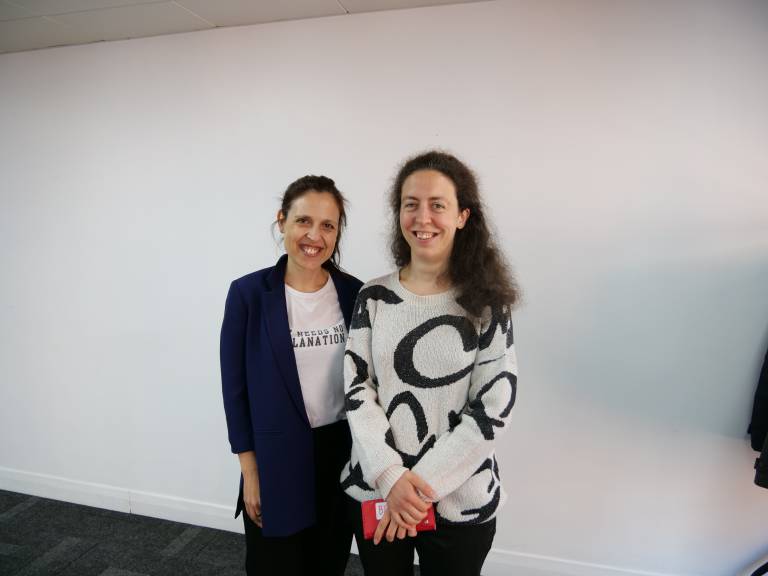UCL researchers developing gene therapies against Ebola, HIV-AIDS and malaria
7 September 2023
In collaboration with High Value Manufacturing Catapult’s CPI and the Innovation Launchpad Network, two University College London academics could help millions with their research project.

Two academics from UCL are set to cause a stir in the healthcare research space with a new cell and gene research project which could stand to help millions of people suffering from Ebola, HIV-AIDS and Malaria.
In collaboration with CPI and the Innovation Launchpad Network+, Beatrice Melinek and Salome Alexandra De Sa Magalhaes (UCL Biochemical Engineering) will be gathering vital information during their Researcher in Residence placement with the aim of creating and commercialising a compact, standalone automated device for reliable, predictable and robust production of DNA.
The production of Plasmid DNA (pDNA) forms the base of DNA vaccines and gene therapies against many infectious and genetic diseases such as Ebola, HIV-AIDS and Malaria. Current manufacturing techniques use cells grown in bioreactors, but Beatrice and Salome are proposing a next-generation method which bypasses this step. Their novel cell-free production platform could be substantially faster, more productive, and more robust.
“Imagine a coffee pod machine that produces DNA – with similar size and ease of use. A similar capsule-based approach will allow the user to pick their own flavour without any significant change in the production protocol they follow. In the future we hope to build up to a system with the flexibility of 3D printing.”
Suzanne Robb, Technology and Innovation Officer at CPI said: “We are delighted to be offering our expertise to help advance this vital research. A standalone device which could automatically produce DNA for a variety of infectious diseases has the potential not just to advance how we currently manufacture DNA for therapies and vaccines, but should this research prove successful, it could revolutions how quickly healthcare can be delivered to millions of people.
“Current methods of manufacturing DNA for certain conditions can take vast amounts of time and money, by speeding up this process while maintaining high standards of production, vital time could be saved in the future in getting therapies to those who need it most.”
Working alongside CPI, Beatrice and Salome’s project will benefit from the centre’s expert knowledge and their state-of-the art facilities for the development of a flexible purification method. CPI will provide its knowledge and expertise in high-throughput and small-scale development of purification methods including training and access to CPI’s equipment and facilities.
Links
- Dr Beatrice Melinek's research profile
- Dr Salome Alexandra De Sa Magalhaes' research profile
- Innovation Launchpad Network+
- UCL Biochemical Engineering
 Close
Close

